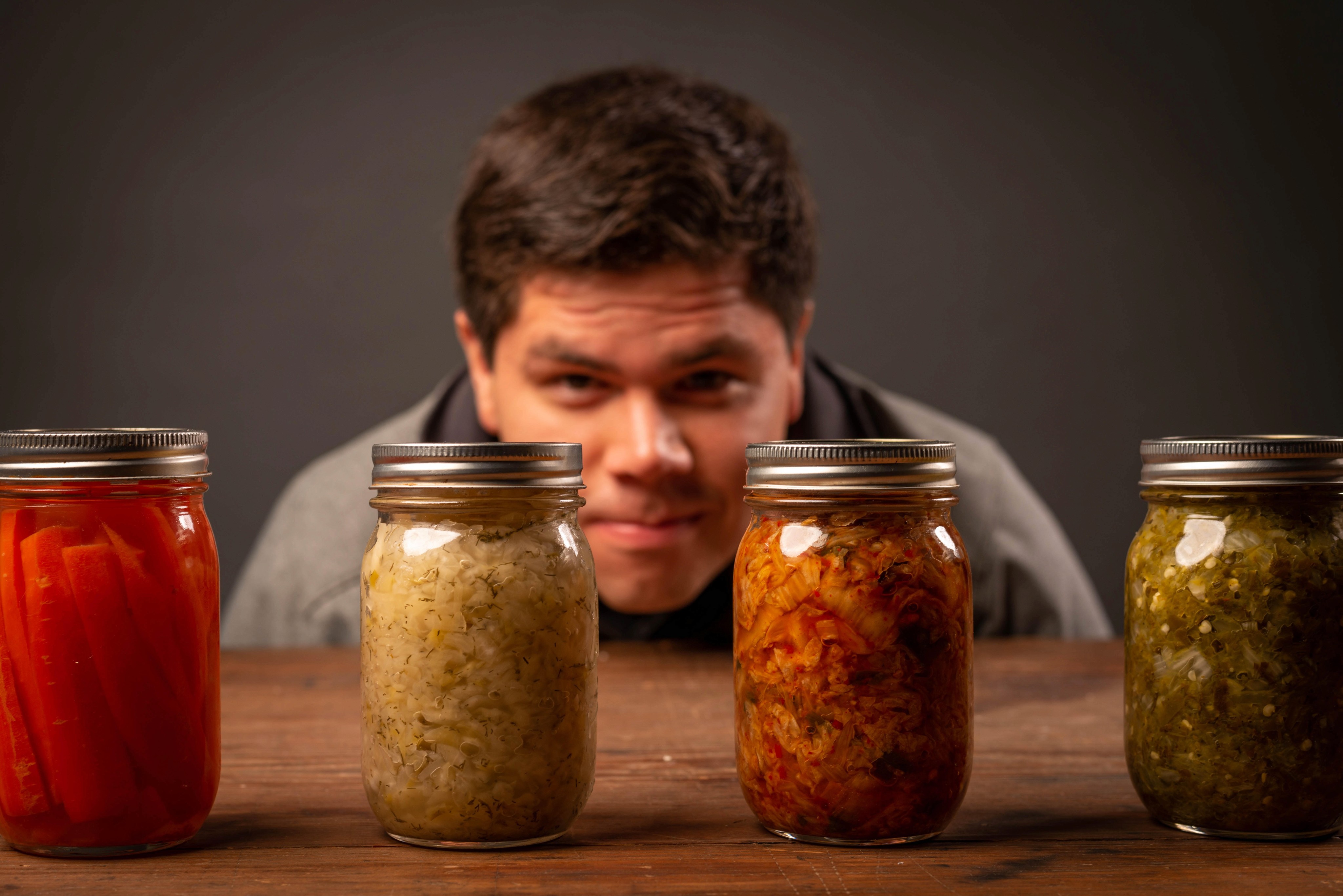Why the hype around pre and probiotics?
As the world begins to emerge from the pandemic, many people are taking a more proactive approach to their health and are looking for new ways to stay well. Both pre and probiotics have gained huge media attention as natural remedies for everything from anxiety and depression to IBS and digestive issues - but just how accurate are these claims? In this article, I’ll be taking a look at what pre and probiotics are, what they do in the body and whether they can be beneficial for our health.
What are pre and probiotics?
Prebiotics are specific types of fibres that provide substrate for the gut microbes. They essentially function as ‘food’, promoting the growth of gut-friendly microbes. Meanwhile, probiotics are the live microbes themselves (1). As they both work together, it is important to have a good supply of both.
How do pre and probiotics benefit the health of our gut?
From previous research, we know that a healthy gut is crucial for our overall health; as most of our immune system is located in the gut, its health has a direct impact on levels of systemic inflammation throughout the body and therefore plays a key role in the development of inflammatory conditions (2) - to read more about how the gut impacts inflammation, click here. For a healthy gut, we need the lining of the gut to be strong and intact, and we need it to contain a large and diverse range of microbes - and pre and probiotics may be able to support this. Regularly consuming probiotics (healthy live microbes) can increase the plethora of microbes within our gut, while prebiotics encourage the growth and proliferation of friendly bacteria. In turn, our body is able to create substances to support the health of the gut, keeping its barrier intact and preventing leaky gut (3).
Can pre and probiotics help with specific conditions?
While research in this area is still emerging, the use of specific strains of probiotics shows promise for a range of conditions including digestive issues, ulcerative colitis and IBS, and may improve overall health by supporting the functioning of the immune system (4). There has been much less research conducted on prebiotics, but we do know that alongside supporting gut integrity, prebiotics can improve calcium absorption and carbohydrate metabolism, alongside encouraging the growth of friendly microbes, so do still offer many benefits (5).

What foods contain pre and probiotics?
Luckily, lots of delicious and widely available foods! Prebiotics can be found in bananas, apples, artichoke, asparagus, chicory, oats, berries, flaxseeds, garlic, onion and leek (6). Fermented foods such as yoghurt, sourdough, kimchi, sauerkraut and kombucha, as well as traditionally fermented cheeses are great sources of probiotics. However, be aware that not all fermented foods contain probiotics, as many are destroyed during manufacturing processes, such as heat treatment (7). As such, be sure to check labels for ‘live’ bacteria, or try making your own fermented foods at home.
DEFLAME is a plant-based liquid supplement containing 200mg omega-3 per dose, alongside curcumin, ginger and frankincense, all of which are natural anti-inflammatory ingredients designed to reduce inflammation and oxidative stress. To read more about DEFLAME, click here.
References:
Pandey, K., Naik, S. and Vakil, B., 2015. Probiotics, prebiotics and synbiotics- a review. Journal of Food Science and Technology, 52(12), pp.7577-7587
Wang, J., Chen, W. and Wang, Y., 2020. The Relationship Between Gut Microbiota and Inflammatory Diseases: The Role of Macrophages. Frontiers in Microbiology, 11
Markowiak, P. and Slizewska, K., 2017. Effects of Probiotics, Prebiotics, and Synbiotics on Human Health. Nutrients, 9(9), p.1021
National Center For Complementary and Integrative Health. 2021. Probiotics: what you need to know. Available at: https://www.nccih.nih.gov/health/probiotics-what-you-need-to-know (Accessed: 1st June 2021)
Slavin, J., 2013. Fiber and Prebiotics: Mechanisms and Health Benefits. Nutrients, 5(4), pp.1417-1435
Gut Charity. 2021. Prebiotics & Probiotics. Available at: https://gutscharity.org.uk/advice-and-information/health-and-lifestyle/prebiotics-probiotics/ (Accessed: 1st June 2021)
Harvard Health Publishing. 2020. How to get more probiotics. Available at: https://www.health.harvard.edu/staying-healthy/how-to-get-more-probiotics (Accessed: 1st June 2021)

